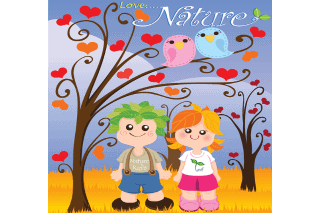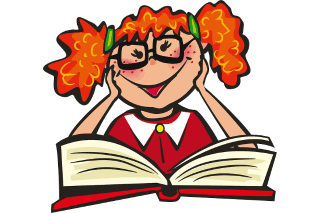
Hall of fame
Having a collection of poems for kids at the school level is an excellent resource for educators and parents. It provides children with a wide range of poems to read and explore, helping them to develop their language, reading, and writing skills while also promoting their emotional intelligence and cultural awareness.
Poetry plays a vital role in a child’s language development and can help them to express their emotions, thoughts, and feelings in a creative and unique way. It is a form of literature that uses language to evoke emotion, imagery, and sensory experiences.
Poetry helps children to develop their reading and writing skills. It helps them to build their vocabulary, understand sentence structure, and develop a sense of rhythm and rhyme. When children read and write poetry, they learn to play with language and explore its many possibilities. It encourages them to think creatively, to use their imagination, and to experiment with different writing styles.
Moreover, poetry can be used to teach children about history, culture, and society. Poems are often written about specific events or periods, and reading them can help children to learn about the world around them. Poems can also be used to teach children about different cultures and traditions, allowing them to gain a greater understanding and appreciation of other people and their ways of life.
Frequently asked questions (FAQ's) based on 'English Poems'
Answer: Poems can help children express themselves by providing a creative outlet for their emotions and ideas. Children can use poems to explore their feelings, thoughts, and experiences in a unique and creative way. This can help children build their self-esteem, confidence, and emotional intelligence.
Answer: English Poems are important for children’s language development because they expose children to new vocabulary, grammar, and sentence structures. They also help children learn the rhythms and sounds of language, which can improve their reading, writing, and communication skills.
Answer: Poems can help children develop critical thinking skills by requiring them to think beyond the literal meaning of the words. Poems often contain metaphorical language, which can challenge children to analyze and interpret complex information. This can help children develop their critical thinking skills and learn to think creatively and independently.
Answer: Parents and teachers can incorporate poems into children’s daily lives by reading poems aloud, reciting poems with children, and encouraging children to write their own poems. They can also use poems as a starting point for discussions about language, literature, and creativity.
Answer: Exposing children to poetry at a young age can have many benefits, including improving language skills, fostering creativity and imagination, developing critical thinking skills, and inspiring a love for literature. It can also help children build self-esteem and confidence by providing a creative outlet for self-expression.
Answer: English poems can help children improve their reading skills by introducing them to new vocabulary, grammar, and sentence structures in a fun and engaging way. The rhyme, rhythm, and repetition in poems can also help children develop phonemic awareness and improve their ability to decode and recognize words.
Answer: Poems can help children develop empathy and emotional intelligence by providing a space for children to explore and express their emotions. By reading and reciting poems, children can learn to recognize and understand different emotions and perspectives, which can improve their ability to relate to others and build stronger relationships.
Answer: Teachers can use English poems in the classroom to enhance learning by incorporating them into lessons on language, literature, history, science, and more. Poems can also be used as a starting point for discussions and debates, as well as for creative writing and art projects.
Answer: Parents and teachers can encourage children to write their own poems by providing them with prompts, resources, and feedback. They can also create a safe and supportive environment for children to express themselves and explore their creativity. By encouraging children to write their own poems, parents and teachers can help children develop their writing skills, self-expression, and confidence.
Related links
Other popular poems
Other related keywords and search's
- short english poems for recitation competition
- english poems for kids
- best poets of the 21st century
- english poems for class 1
- theme based poem in english
- short poems for grade 5
- english poem for class 3
- poems for college magazine in english
- best poetry english poem
- english poem recitation for class 2
- english recitation poems for class kg
- english poem lyrics written
- english poems on children
- poetry for kids rhymes in english
- short poetry poems for kids
- short easy poems for recitation
- famous poems for grade 4 students
- monsoon poem for class 1
- small child poem in english
- english poem for preschoolers
- short poems for nursery kids
- english poems with questions and answers
- english poems printable pdf
- full poems written in english


























